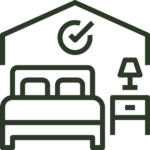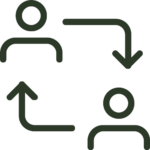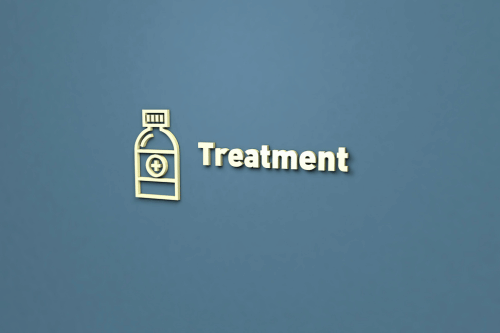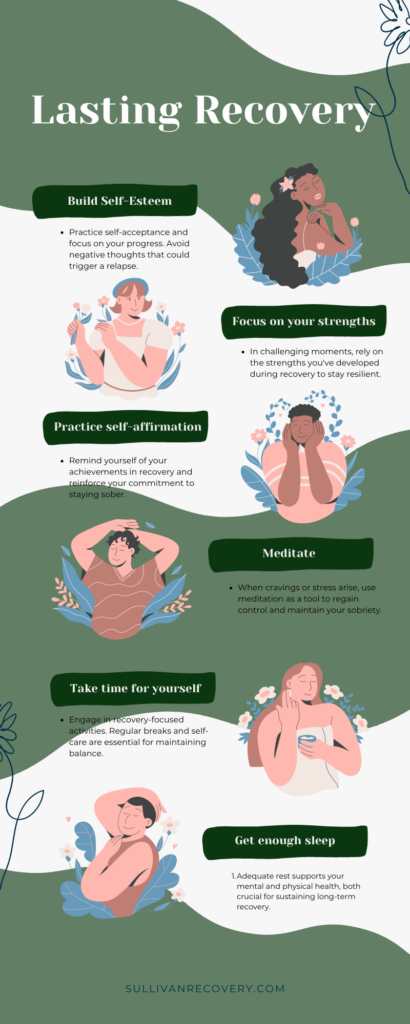We offer the highest quality resources to support your recovery journey, ensuring absolute comfort and maximizing your insurance benefits.






At Sullivan Recovery, our IOP treatment in Mission Viejo provides structured care for individuals recovering from substance abuse, mental health disorders, or both. This outpatient rehab program allows patients to receive clinical therapy and medical support while maintaining work, school, and family responsibilities.
Our treatment center in Orange County combines evidence-based methods from psychology, psychiatry, and nursing to create a plan that promotes stability, health, and lasting sobriety.
An Intensive Outpatient Program (IOP) is a structured form of mental health treatment and addiction rehab that does not require overnight stays. Patients attend therapy sessions several times a week, working on emotional regulation, relapse prevention, and coping skills.
This level of care fits between partial hospitalization and standard outpatient therapy. It’s designed for people who need consistent support for addiction, major depressive disorder, bipolar disorder, anxiety disorder, or borderline personality disorder but who do not require 24-hour supervision.
At Sullivan Recovery, our IOP follows a recovery model that focuses on progress, accountability, and long-term health improvement.
Certain behaviors and symptoms can suggest that someone would benefit from structured outpatient rehab. These include difficulty managing emotions, ongoing cravings, or returning to substance abuse after previous treatment.
People experiencing persistent stress, severe mood swings, or unstable relationships may also need professional help. Those living with dual diagnosis conditions—such as addiction combined with anxiety, depression, or personality disorder—can benefit from integrated therapy and medical management.
If daily coping becomes overwhelming or relapse risk increases, enrolling in IOP treatment in Mission Viejo can be a critical step toward recovery and stability.

According to the Substance Abuse and Mental Health Services Administration (SAMHSA), over 48 million adults in the U.S. struggle with a mental illness, and about 21 million also experience a substance use disorder each year. This overlap emphasizes the importance of programs that address both mental and behavioral health needs simultaneously.
In California, the California Health Care Foundation (CHCF) reports that one in six adults has a substance use disorder, yet less than 10% receive specialized treatment. Communities in Orange County, including Mission Viejo, are seeing rising rates of opioid, stimulant, and alcohol-related hospital visits.
Sullivan Recovery’s IOP program helps bridge this treatment gap by offering evidence-based care for addiction and co-occurring disorders in a flexible, outpatient setting.
(Sources: SAMHSA.gov, CHCF.org)
What our patients have experienced
Trustindex verifies that the original source of the review is Google. All staff had been extremely helpful supportive helpful and caring. The environment and house has a very nice vibe and environment recovery is very important and doable here. Your team and staff had made sobriety seem very welcoming and realistic Brian amber and all the other staff had made this experience clear that I can do this. Thank you Sullivan’sPosted onTrustindex verifies that the original source of the review is Google. I work here and have been through many Treatment and Detox programs myself when I was trying to get sober. This place is by far one of my favorite the people that work here are real and have been through the trenches of drugs and alcohol and know exactly what it’s like to get sober and acquire some time under your belt. If your looking to change your life and feel accepted and safe while your doing it this is definitely the place. Reach out Love Your Life!Posted onTrustindex verifies that the original source of the review is Google. Excellent place it helped me get ckeanPosted onTrustindex verifies that the original source of the review is Google. I was lost in my addiction I had turned and tried lots of places. Last detox place I walked in on my own and walked out two minutes later because of the staff response and cleanliness of the facility. So two weeks ago walked into Sullivan recovery on my own and instantly felt wanted and loved, most importantly felt respected even though I didn’t even respect myself. The staff was super cool and the intake guy Bryan Ralph made me feel wanted and comfortable. I wish I could stay another week but outside circumstances have halted that. I k is I made some new family remembers here that will always have my back. Thanks to all staff at the Sullivan recovery house. Mainly Bryan, Bobby, Amy, Jessica dory and especially Amber. Amber thank you so much for being tough with me and holding me to a standard.Posted onTrustindex verifies that the original source of the review is Google. I came to Sullivan with no idea of what to expect. Cory Sullivan is amazing and so is his staff. T.J., Amber, Jessica, Brian, Dory and the best breakfast chef and check in master Bobby are something special. They took me in under their wings and nurtured me back to health. Cory navigated me through the addiction I was experiencing troubles with. The facilitators they bring in Hunter, Shawn for yoga, Julia for sound bowls and meditation, Stephen for music therapy and Joel for relapse prevention are equally as special. This place is life changing and the house is very nice with everything you need and want in a home. Jessica cooks up some amazing dinners and they tailor to your dietary needs. I went there broken and left with a family that I will always revisit. I need to mention Jake and Ryan they took us to A.A. meetings and shared their own journeys with me. I am forever grateful for this experience and opportunity to help me get my life back. Highly recommend a stay here if you are struggling with addiction. Fun activities to boot! Going to the pool with Brian or the gym with personal trainer Josh. You might even get an Angel’s game in! Just a lovely classy place!!❤️🙏👍Posted onTrustindex verifies that the original source of the review is Google. I love this place so much. It’s a beautiful and clean house. All the staff here are awesome and caring people. I will truly miss all of them. I’ve been to many other rehabs but none compare to Sullivan Recovery. I would recommend this place to anyone who wants to get clean and sober and learn a better way of living.Posted onTrustindex verifies that the original source of the review is Google. I was stuck and felt alone and everyone here made it feel like a family. I appreciate everyone here!Posted onTrustindex verifies that the original source of the review is Google. This is a good place. Good food. Good staff. Great atmosphere.Posted onTrustindex verifies that the original source of the review is Google. I had the most amazing time at Sullivan's..when u walk thru the door u become part of the family..I'm truly sad to be leaving.Altho they have set me up for success..Thank you to all the amazing staff❤️Posted onTrustindex verifies that the original source of the review is Google. Home cooked meals, friendly staff and a great community is just a few words to describe this facility. I feel really comfortable here and it’s a very warm, welcoming and homey environment to be in through the tough times of detox and addiction. I recommend this place with all of my heart.
Our IOP treatment in Mission Viejo follows a structured but personalized path that includes assessment, therapy, medication management, and continuous monitoring by clinical professionals.
Alcohol Detox
Safely withdrawing from alcohol involves managing withdrawal symptoms like tremors, anxiety, and insomnia. This often includes medically supervised tapering, medications to ease discomfort, and therapy to address underlying issues.
Due to its potency, fentanyl detox requires medical supervision. Medications like buprenorphine or methadone can help manage cravings and withdrawal symptoms, while therapy addresses psychological dependence.
Opioids Detox
Opioid withdrawal symptoms can be severe, necessitating medically assisted treatment. Buprenorphine and methadone are commonly used to ease cravings and discomfort, alongside therapy for holistic recovery.
Cocaine detox primarily focuses on managing psychological withdrawal symptoms like fatigue, depression, and cravings. Therapy and support groups are essential for developing coping mechanisms and preventing relapse.
Benzodiazepine Detox
Gradual tapering under medical supervision is crucial to avoid severe withdrawal symptoms like seizures and anxiety. Medications may be used to manage discomfort, and therapy helps address psychological dependence.
Meth Detox
Meth withdrawal often involves intense cravings, depression, and fatigue. Behavioral therapy and support groups are key for developing coping skills, while medications may be used to address specific symptoms.
Suboxone Detox
Suboxone detox focuses on tapering off the medication while managing withdrawal symptoms. This is typically done under medical supervision, with therapy to address underlying opioid dependence and develop coping strategies.
Depressants Detox
Gradual tapering under medical supervision is crucial to avoid severe withdrawal symptoms. Medications may be used to manage anxiety and seizures, while therapy helps address psychological dependence.

Many individuals in IOP treatment face both mental health and substance abuse challenges. This is known as dual diagnosis. Without treating both conditions, relapse risk remains high.
At Sullivan Recovery, dual diagnosis care integrates therapy for addiction, depression, anxiety, bipolar disorder, and borderline personality disorder. Our licensed clinicians provide therapy and psychiatric medication in a single treatment plan, ensuring all aspects of health are addressed together.
This approach allows patients to develop better coping strategies and gain a deeper understanding of how emotional distress influences addictive behavior.
Sullivan Recovery uses evidence-based approaches proven to support both mental health treatment and addiction recovery.
DBT helps patients manage intense emotions, control impulsive behavior, and improve relationships. It is especially effective for those with borderline personality disorder, bipolar disorder, or trauma-related symptoms.
These focus on identifying negative thought patterns and replacing them with healthier ones. Patients learn how to respond to stress and triggers without returning to drugs or alcohol.
Our recovery model encourages personal responsibility, social support, and community engagement. It teaches patients that recovery is a continuous process of growth rather than a single event.
Practicing meditation and mindfulness improves focus, emotional balance, and relapse prevention. These techniques calm the nervous system and promote long-term wellness.
Sullivan Recovery accepts most major health insurance plans to make treatment accessible and affordable. Many providers cover IOP treatment, mental health services, and addiction rehab under behavioral health benefits.
Our admissions team works directly with insurance companies to confirm coverage and minimize out-of-pocket costs. Patients without insurance can discuss flexible payment options or financial plans.
Our goal is to ensure that anyone seeking help for addiction, mental health, or dual diagnosis conditions can receive professional treatment without financial barriers.
(For more on insurance parity and behavioral health coverage, visit HHS.gov and SAMHSA.gov.)
Clinical nursing support ensures safety throughout the IOP process. Our licensed nurses coordinate with psychiatrists, nurse practitioners, and therapists to monitor physical and emotional progress.
Patients may receive routine health checks, lab monitoring, and medication education. This medical collaboration reinforces the link between physical health, emotional well-being, and recovery outcomes.
Sobriety maintenance requires continued effort even after formal treatment ends. At Sullivan Recovery, we guide patients toward sustained recovery through ongoing support, therapy, and community involvement.
After completing IOP treatment, many patients transition into standard outpatient programs, support groups, or alumni networks. These options provide continued accountability and prevent relapse.
Through ongoing mental health treatment, medication management, and access to counseling, patients maintain the stability gained during IOP and build fulfilling lives in recovery.
Choosing Sullivan Recovery’s IOP treatment means receiving high-quality care rooted in evidence-based practice and compassionate guidance. Our treatment center offers:
Located in Mission Viejo, our outpatient rehab serves clients across Orange County seeking practical, effective, and life-changing recovery solutions.
After completing inpatient treatment, many individuals transition to an outpatient program to continue their recovery journey. Outpatient programs offer the flexibility to live at home while still receiving structured support from the treatment center.
These programs typically include regular counseling sessions, group therapy, and access to additional resources that help reinforce the skills learned during inpatient care. By participating in an outpatient program, you can gradually adjust to everyday life while still benefiting from the support and guidance of rehabilitation facilities.
For those recovering from alcohol abuse, ongoing management from a medical detox is essential. This includes regular check-ups with your healthcare provider to monitor your physical health and ensure that you are maintaining your sobriety.
In some cases, individuals may require additional medical detox if they experience a relapse. Medical detox is a supervised process where the body is safely rid of alcohol or other substances under medical care. It’s a critical step for those who may struggle with severe withdrawal symptoms, and it helps to reset the body for continued recovery.
Medication Assisted Treatment (MAT) is another vital component of ongoing care after inpatient treatment. MAT involves the use of FDA-approved medications, combined with counseling and behavioral therapies, to treat substance use disorders. This approach is particularly effective for those recovering from alcohol abuse or opioid addiction.
MAT can help reduce cravings, manage withdrawal symptoms, and prevent relapse, making it an important part of the overall recovery plan. By working closely with your treatment center, you can determine if MAT is a suitable option for your continued care.
Holistic therapies are an integral part of many inpatient treatment programs, and they can continue to play a significant role in your recovery after leaving the treatment center. Holistic therapies focus on healing the mind, body, and spirit, and include practices such as yoga, meditation, acupuncture, and nutrition counseling. Incorporating these therapies into your daily routine can help reduce stress, improve mental clarity, and promote overall well-being. By continuing to engage in holistic therapies, you can strengthen your recovery and build a balanced, healthy lifestyle.
A strong support network is essential for maintaining sobriety after completing an inpatient program. This network can include family, friends, support groups, and healthcare professionals who understand the challenges of recovery. Participating in support groups, such as Alcoholics Anonymous (AA) or Narcotics Anonymous (NA), can provide ongoing encouragement and accountability. Additionally, regular therapy sessions with a counselor or therapist can help you navigate the emotional and psychological challenges that may arise during your recovery.
Addiction and mental health conditions often develop together, forming a cycle of emotional distress and harmful behavior. Treating one without the other leaves recovery incomplete.
Our integrated model ensures that each patient receives both psychiatric care and therapy. Conditions such as anxiety, bipolar disorder, or major depressive disorder are managed with medication, counseling, and holistic support.
This approach not only promotes sobriety but also helps patients regain confidence, manage stress, and live independently.
If you or someone you care about needs IOP treatment in Mission Viejo, Sullivan Recovery is ready to help. Our experienced team provides expert care in a supportive environment focused on healing, stability, and personal growth.
Start the process today by contacting our admissions team for a confidential assessment. Learn how our outpatient rehab can help you rebuild your health, strengthen your coping skills, and maintain lasting sobriety.
Call Sullivan Recovery today or visit our website to begin your recovery journey.
Sources:
At Sullivan Recovery, as an in-network provider we work with most insurance plans, such as:
And More
If you or a loved one are struggling with mental health challenges or substance abuse, reach out to Sullivan Recovery today. Our team of compassionate professionals is here to support your journey towards lasting well-being. Give us a call at 949-836-7180.
We are available around the clock to assist you, every day of the year.
Most IOP programs at Sullivan Recovery last between 8 to 12 weeks, depending on each patient’s progress and treatment goals. Frequency of sessions may be adjusted over time as stability improves.
Yes. The IOP schedule at Sullivan Recovery is flexible, allowing clients to maintain daily commitments like work, school, or family responsibilities while receiving consistent clinical care and therapy.
IOP involves more therapy hours and structured sessions per week than traditional outpatient rehab. It’s designed for individuals who need strong support but don’t require inpatient or residential treatment.
Yes. Sullivan Recovery provides both in-person and telehealth options for IOP treatment in Mission Viejo, ensuring patients can access therapy, psychiatry, and medication management from a safe and convenient setting.